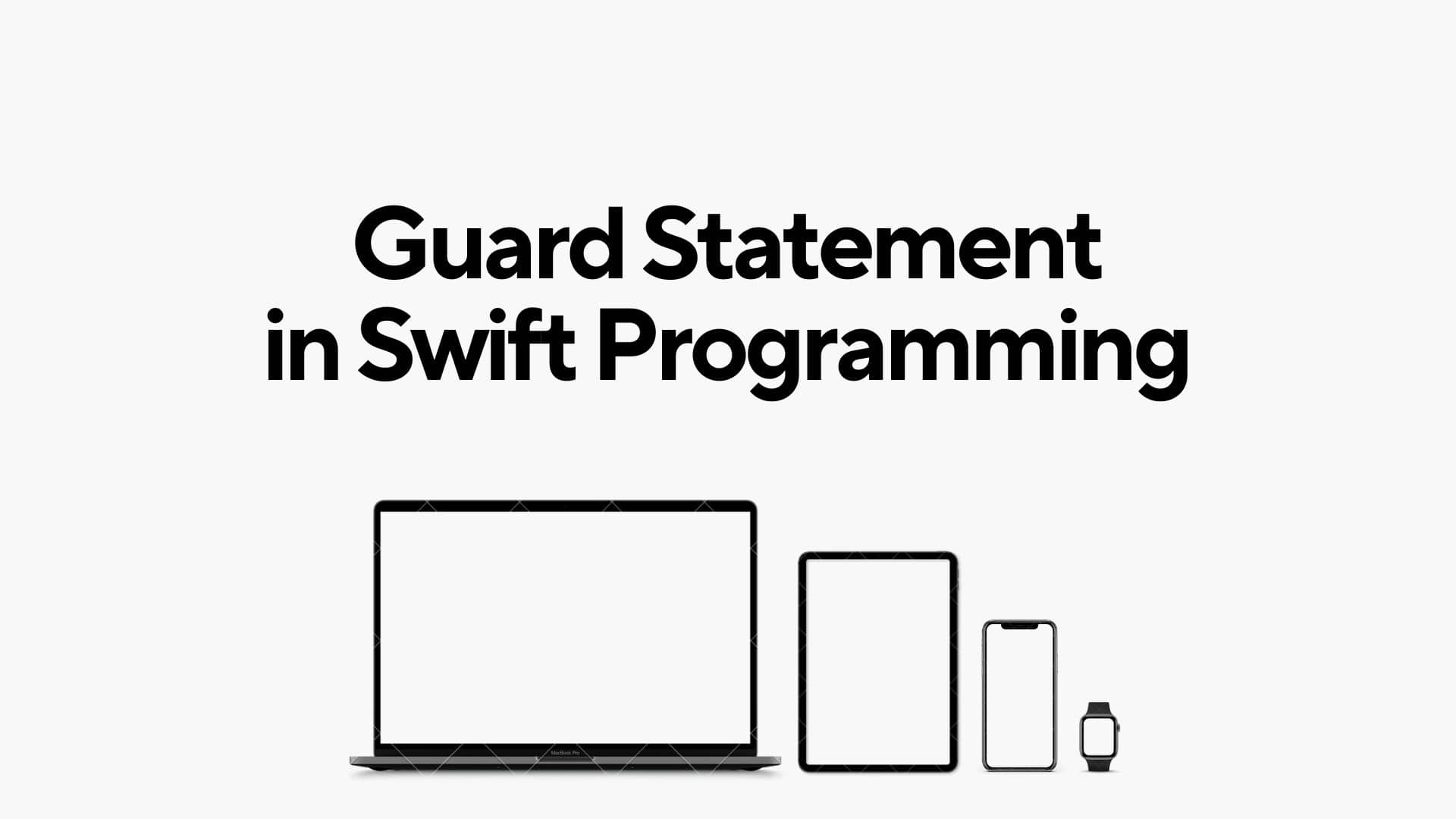Guard Statement in Swift

In Swift, guard is a control flow statement used for early exit from a block of code if a certain condition is not met. It helps improve code readability by reducing the nesting levels compared to using if-else statements for error handling and conditional checks.
guard provides a way to gracefully exit a scope if conditions are not met.The basic syntax of guard is as follows:
guard condition else {
// statements to execute if condition is not met
// this block must exit the current scope
}
Here's how guard in Swift works:
- If the
conditionevaluates totrue, the code execution continues normally after theguardstatement. - If the
conditionevaluates tofalse, the code inside theelseblock is executed. - The code inside the
elseblock must contain statements that transfer control flow out of the current scope, such asreturn,throw,continue, orbreak. This ensures that the code after theguardstatement can only be executed when the condition is met.
For example, in the context of error handling:
func process(number: Int?) {
guard let number = number else {
print("Error: Missing number")
return
}
// Use 'number' safely here
print("Number is \(number)")
}
process(number: 10) // Output: Number is 10
process(number: nil) // Output: Error: Missing numberIn the above example, the guard statement ensures that the function process can only proceed if a non-nil value is provided for number. If number is nil, the guard statement's else block is executed, printing an error message, and then the function exits early with return, preventing further execution of the code in the function.
Here's another example:
func greet(person: String?) {
guard let name = person else {
print("No person to greet!")
return
}
print("Hello, \(name)!")
}
// Example usage:
greet(person: "Alice") // Prints: Hello, Alice!
greet(person: nil) // Prints: No person to greet!
In the above example:
- The
greetfunction takes an optionalStringparameterperson. - The
guard let name = person else { ... }statement unwraps the optionalperson. Ifpersonisnil, theguardblock is executed, which prints a message and returns from the function. - If
personis notnil, the code after theguardstatement continues to execute, and the function greets the person by printing a message.
In essence, guard provides a way to ensure that the function's requirements for the input are met, and if not, it bails out early with an error. guard statements are often used to handle optional unwrapping.